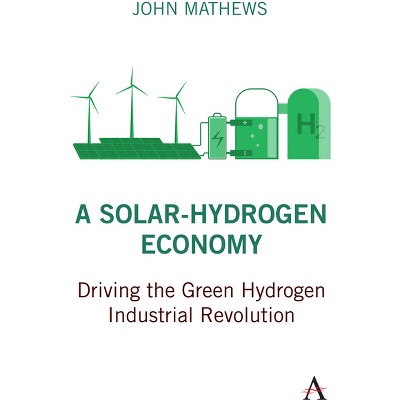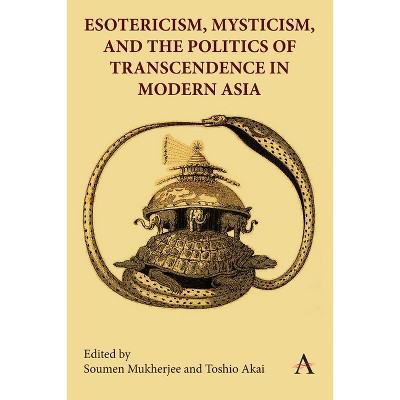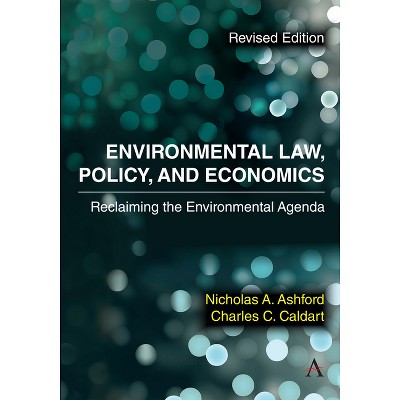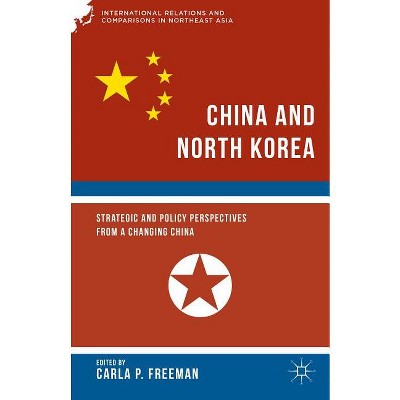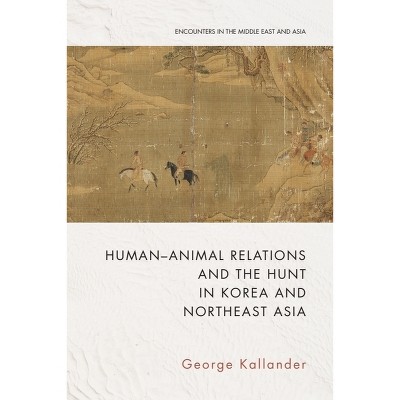About this item
Highlights
- Sustainable Peace in Northeast Asia examines the causes of lasting and complex tensions in the region and explores possible solutions to build lasting peace here.
- About the Author: Professor Lee is a lawyer, economist, international relations expert, and former diplomat.
- 324 Pages
- Political Science, International Relations
Description
About the Book
Sustainable Peace in Northeast Asia examines the causes of lasting and complex tensions in the region and explores possible solutions to build lasting peace here.
Book Synopsis
Sustainable Peace in Northeast Asia examines the causes of lasting and complex tensions in the region and explores possible solutions to build lasting peace here.
Review Quotes
"Lee's volume is a balanced, penetrating, and up-to-date analysis of political, historical, military, and economic dynamics in Northeast Asia. It is comprehensive in scope, innovative in analytical orientation, rigorous in empirical investigation, and rich in policy implications. Departing from the traditional great power determinism, he adopts an 'inside-out' approach focusing on six individual countries (North Korea, China, South Korea, Japan, Russia, and Mongolia). Lee skillfully unravels hidden codes of regional dynamics and generates powerful policy implications for sustainable peace in Northeast Asia. Strongly recommended for scholars, policy-makers, and laymen who are interested in conflicts and peace in contemporary Northeast Asia." -Dr. Chung-in Moon, Professor Emeritus, Yonsei University
"Dr. Lee's new book "Sustainable Peace In Northeast Asia" is an interesting, innovative and multidisciplinary project. Cultural, historical, political economy, and geopolitical factors are closely integrated into the development of the book. The book is worth reading by scholars and students in international relationships, government officials focusing on Northeast Asia, and readers interested in politics and peace in this important and dynamic region."- Dr. Guanghua Yu, Professor of Law, University of Hong Kong
"Dr. Yong-Shik Lee is uniquely situated to engage in a thorough treatment of Northeast Asia as a legal academic, law and development expert, international law authority, law and economics specialist, diplomat, and multi-continent academic. The breadth and depth of his experience and knowledge provide insights that make "Sustainable Peace in Northeast Asia" a must read for students, scholars, decisionmakers, and policymakers. International relations literature tends to be dominated with large global theories and area specialists often focus on one country as it relates to neighbors or on very specific issues. Dr. Lee is able to add a new perspective by examining China, North Korea, South Korea, Mongolia, and Japan from a regional and nation specific perspective. Including the impacts of major global powers in regional alliances, diplomacy, trade, and investment provides a deeper understanding of the importance of Northeast Asia in the larger global landscape. By delivering a strong historical approach to situate modern positions, Dr. Lee allows a context rich understanding of Northeast Asia that is not available elsewhere. The solid foundation makes his approach to potential solutions and strategies particularly helpful. Dr. Lee covers complex dynamics in an engaging and thought-provoking manner making "Sustainable Peace in Northeast Asia" appealing read. "Sustainable Peace in Northeast Asia" is a must read and essential tool for anyone interested in Northeast Asia and larger global issues."- Dr. John Parsi, College of Law, University of Nebraska
"Dr. Yong-Shik Lee's book "Sustainable Peace In Northeast Asia" presents a new approach to the security issues in Northeast Asia. Many of us address these issues from a traditional perspective, focusing on current geo-political and military affairs. In contrast, Dr. Lee's book moves beyond the narrow confines of this traditional approach and performs a broader analysis of historical, political, economic, cultural and other factors that affect sustainable peace in the region. This innovative approach makes Dr. Lee's book a unique scholarly contribution and a must read for policymakers, academics, students, and all others sharing interests in the important question of sustaining peace in Northeast Asia."- Dr. Bayasgalan Sanallkhundev, Associate Professor of International Relations and Public Administration, National University of Mongolia
"Dr. Yong-Shik Lee's new book "Sustainable Peace In Northeast Asia" suggests innovative, in-depth and comprehensive analysis on the continuing geopolitical tension in Northeast Asia. His careful and thorough data-backed examination of the repercussions of the Korean unification to Northeast Asia gave me valuable academic insight for actual policy making in the Foreign Affair & Unification Committee. I am also truly inspired by Dr. Lee's anatomy of the influence of the external powers over the crisis, their political and economic objectives, their strategies and the dynamics that their engagement has created within Northeast Asia. This volume should be widely read not only among academics but policymakers as well."- Hon. Yongho Tae, Vice Chair of the Foreign Affair & Unification Committee of the National Assembly of the Republic of Korea, Former Deputy Ambassador of the Democratic People's Republic of Korea to the United Kingdom
"Professor Lee's book includes a chapter on Japan which comprehensively, accurately, and concisely describes Japan's political and economic history, its tense relationship with neighboring countries, and ways to resolve them. It is a must-read for researchers and students studying the subject. This book is an excellent introduction and a practical prescription for achieving peace in East Asia."-Dr. Hiroyuki Hoshiro, Professor, Institute of Social Science, University of Tokyo
"The security environment in Northeast Asia in notoriously complex, but Y.S. Lee weaves a compelling introduction to it. A distinctive feature of the approach is to work through the perspectives of each of the relevant players, with a particular bonus in considering Mongolia's contributions. Professor Lee sees a long-term solution as requiring an institutional component; some kind of regional integration effort that would pull North Korea into the Asia-Pacific success story. He argues that building a rules-based order will hinge on where China's domestic politics is headed, but the US must also take diplomatic risks and lead on the economic issues. A useful introduction for both insiders to the region and those seeking an entry point." - Dr. Stephan Haggard, Lawrence and Sallye Krause Distinguished Professor, School of Global Policy and Strategy, University of California at San Diego
Lee's prognosis is cautious. He explores several alternatives to reduce confrontations (including a union of the Koreas and Mongolia), yet argues that for a long-term solution, 'trust is key'. Historical coverage is brief but offers a good treatment of current issues (including Russia's war in Ukraine)- Choice
"Lee's volume is a balanced, penetrating, and up-to-date analysis of political, historical, military, and economic dynamics in Northeast Asia. It is comprehensive in scope, innovative in analytical orientation, rigorous in empirical investigation, and rich in policy implications. Departing from the traditional great power determinism, he adopts an 'inside-out' approach focusing on six individual countries (North Korea, China, South Korea, Japan, Russia, and Mongolia). Lee skillfully unravels hidden codes of regional dynamics and generates powerful policy implications for sustainable peace in Northeast Asia. Strongly recommended for scholars, policy-makers, and laymen who are interested in conflicts and peace in contemporary Northeast Asia." --Dr. Chung-in Moon, Professor Emeritus, Yonsei University
"Dr. Lee's new book "Sustainable Peace In Northeast Asia" is an interesting, innovative and multidisciplinary project. Cultural, historical, political economy, and geopolitical factors are closely integrated into the development of the book. The book is worth reading by scholars and students in international relationships, government officials focusing on Northeast Asia, and readers interested in politics and peace in this important and dynamic region."-- Dr. Guanghua Yu, Professor of Law, University of Hong Kong
"Dr. Yong-Shik Lee is uniquely situated to engage in a thorough treatment of Northeast Asia as a legal academic, law and development expert, international law authority, law and economics specialist, diplomat, and multi-continent academic. The breadth and depth of his experience and knowledge provide insights that make "Sustainable Peace in Northeast Asia" a must read for students, scholars, decisionmakers, and policymakers. International relations literature tends to be dominated with large global theories and area specialists often focus on one country as it relates to neighbors or on very specific issues. Dr. Lee is able to add a new perspective by examining China, North Korea, South Korea, Mongolia, and Japan from a regional and nation specific perspective. Including the impacts of major global powers in regional alliances, diplomacy, trade, and investment provides a deeper understanding of the importance of Northeast Asia in the larger global landscape. By delivering a strong historical approach to situate modern positions, Dr. Lee allows a context rich understanding of Northeast Asia that is not available elsewhere. The solid foundation makes his approach to potential solutions and strategies particularly helpful. Dr. Lee covers complex dynamics in an engaging and thought-provoking manner making "Sustainable Peace in Northeast Asia" appealing read. "Sustainable Peace in Northeast Asia" is a must read and essential tool for anyone interested in Northeast Asia and larger global issues."-- Dr. John Parsi, College of Law, University of Nebraska
"Dr. Yong-Shik Lee's book "Sustainable Peace In Northeast Asia" presents a new approach to the security issues in Northeast Asia. Many of us address these issues from a traditional perspective, focusing on current geo-political and military affairs. In contrast, Dr. Lee's book moves beyond the narrow confines of this traditional approach and performs a broader analysis of historical, political, economic, cultural and other factors that affect sustainable peace in the region. This innovative approach makes Dr. Lee's book a unique scholarly contribution and a must read for policymakers, academics, students, and all others sharing interests in the important question of sustaining peace in Northeast Asia."-- Dr. Bayasgalan Sanallkhundev, Associate Professor of International Relations and Public Administration, National University of Mongolia
"Dr. Yong-Shik Lee's new book "Sustainable Peace In Northeast Asia" suggests innovative, in-depth and comprehensive analysis on the continuing geopolitical tension in Northeast Asia. His careful and thorough data-backed examination of the repercussions of the Korean unification to Northeast Asia gave me valuable academic insight for actual policy making in the Foreign Affair & Unification Committee. I am also truly inspired by Dr. Lee's anatomy of the influence of the external powers over the crisis, their political and economic objectives, their strategies and the dynamics that their engagement has created within Northeast Asia. This volume should be widely read not only among academics but policymakers as well."-- Hon. Yongho Tae, Vice Chair of the Foreign Affair & Unification Committee of the National Assembly of the Republic of Korea, Former Deputy Ambassador of the Democratic People's Republic of Korea to the United Kingdom
"Professor Lee's book includes a chapter on Japan which comprehensively, accurately, and concisely describes Japan's political and economic history, its tense relationship with neighboring countries, and ways to resolve them. It is a must-read for researchers and students studying the subject. This book is an excellent introduction and a practical prescription for achieving peace in East Asia."--Dr. Hiroyuki Hoshiro, Professor, Institute of Social Science, University of Tokyo
"The security environment in Northeast Asia in notoriously complex, but Y.S. Lee weaves a compelling introduction to it. A distinctive feature of the approach is to work through the perspectives of each of the relevant players, with a particular bonus in considering Mongolia's contributions. Professor Lee sees a long-term solution as requiring an institutional component; some kind of regional integration effort that would pull North Korea into the Asia-Pacific success story. He argues that building a rules-based order will hinge on where China's domestic politics is headed, but the US must also take diplomatic risks and lead on the economic issues. A useful introduction for both insiders to the region and those seeking an entry point." -- Dr. Stephan Haggard, Lawrence and Sallye Krause Distinguished Professor, School of Global Policy and Strategy, University of California at San Diego
Lee's prognosis is cautious. He explores several alternatives to reduce confrontations (including a union of the Koreas and Mongolia), yet argues that for a long-term solution, 'trust is key'. Historical coverage is brief but offers a good treatment of current issues (including Russia's war in Ukraine)-- Choice
About the Author
Professor Lee is a lawyer, economist, international relations expert, and former diplomat. He is currently the Director and Professorial Fellow of the Law and Development Institute. He has taught and conducted academic research at leading universities throughout the United States, Europe, and Asia for over twenty years, including Cornell University, New York University, Emory University, Tulane University, University of Manchester, and the University of Sydney. He graduated with a degree in economics with distinction from the University of California at Berkeley and received degrees in law with honors from the University of Cambridge (B.A., M.A., Ph.D.).Professor Lee has over 120 academic publications. He has frequently spoken on international relations through over 70speech engagements at prominent forums such as Harvard University Kennedy School of Government, Johns Hopkins University School of Advanced International Studies, and the World Bank.







